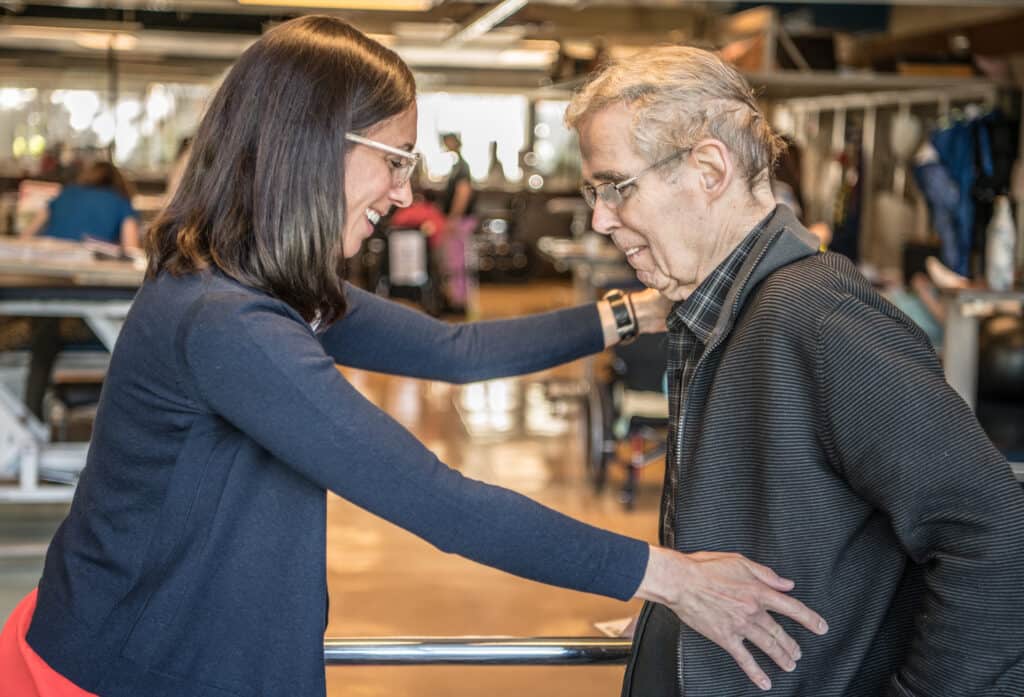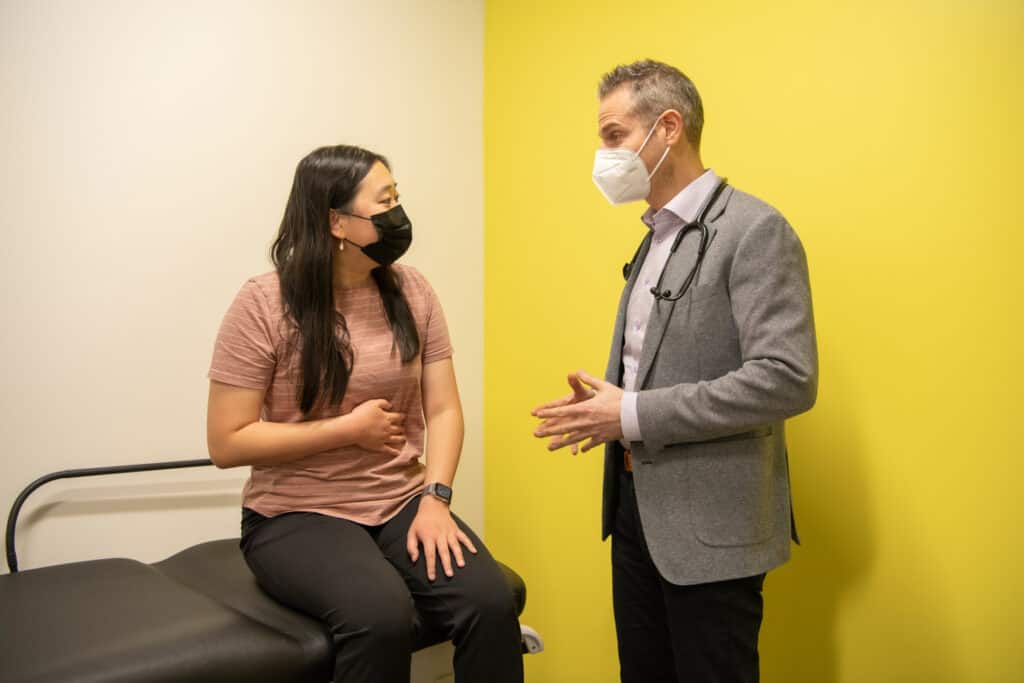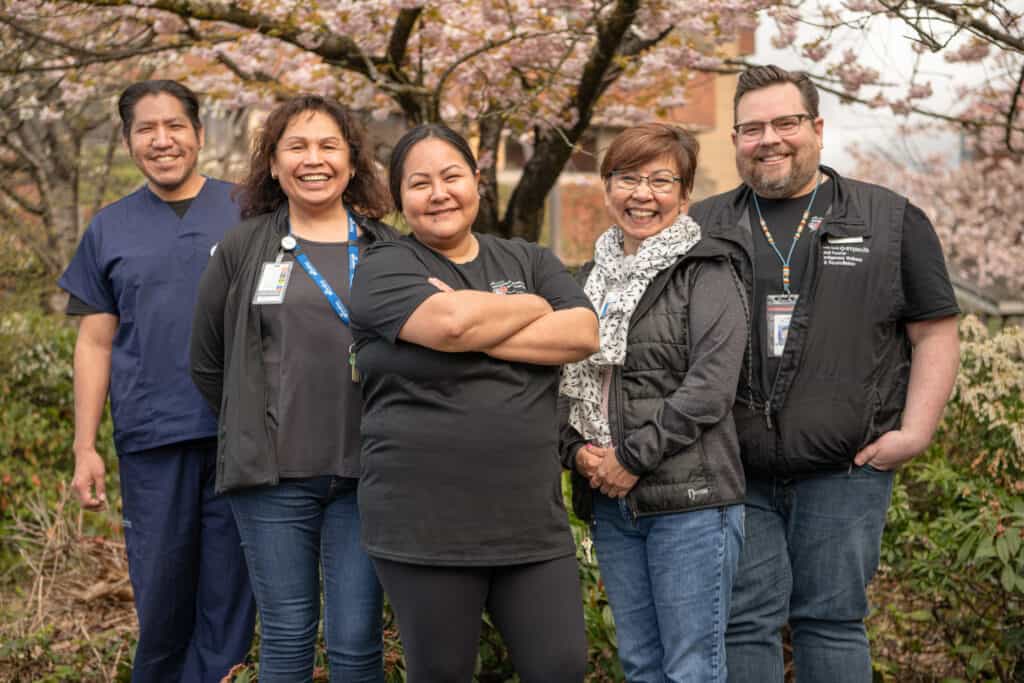Published Promise 2022
Almost seven million Canadians live with chronic inflammatory conditions including arthritis, psoriasis, lupus, and Crohn’s disease.
They’re caused when the body’s immune system detects an injury or infection but mistakenly attacks its own healthy tissue – including the joints, skin, and bowel.
People living with chronic inflammation not only have to manage their disease, but also a long list of associated complications like heart attack, stroke, blood clots, infection, fractures, diabetes, cancer, and lung disease. It’s a lot to manage and there’s a lot on the line.
Scientists at the Centre for Health Evaluation and Outcome Sciences (CHÉOS) are among dozens of investigators, and more than one million patient partners, collaborating on an exciting initiative that’s changing the way we study, treat, and prevent the debilitating effects of these conditions: the PRECISION research initiative, a five-year, $2.5 million study designed to help Canadians living with inflammatory disease to understand their symptoms and take control of their wellness.
One of the things that makes PRECISION so innovative is the breadth of researcher teams. Of course they include specialists in each of the diseases, but they also have physical therapists, occupational therapists, pharmacists, epidemiologists, and digital experts.
Together, they’re working directly with patients to help them understand and interpret the cues they get from their bodies and to recognize when to seek medical guidance. In short: to empower them with the knowledge and tools to live their best lives.
Let’s get physio, physio
Dr. Linda Li is a CHÉOS scientist and a physical therapist. Since 2015, she has led one of the PRECISION studies within the larger research initiative aimed at developing digital tools to help patients manage their disease.
“With PRECISION, our team worked with researchers in computer science and digital media. We used Fitbits and developed a customized app called FitViz. The app helped patients to monitor their day-to-day activities and it motivated them to become more physically active.”
As Li knows from her own experience, multidisciplinary collaboration between scientists and patient partners is a game changer for everyone. Going forward, life-changing “collision” opportunities, like the ones fostered in PRECISION, will increase exponentially. That’s because the new Clinical Support and Research Centre on the Jim Pattison Medical Campus is being purpose built to cultivate and encourage collaboration and discovery.
The future of research
Simply put, the new Clinical Support and Research Centre represents the future of medical research.
Everything about it – from its size, to its equipment budget, to the sky bridge that connects it to the new St. Paul’s Hospital – will expedite collaboration between patients, researchers, clinicians, and industry partners. By integrating patient care, education, and research, we’ll be able to accelerate the development of new drugs, treatments, and therapies.
Li is especially excited about the collaboration opportunities. “As we’ve seen with PRECISION, we can achieve so much more when we bring people together from different fields; people who aren’t normally in the room with each other.”
“We have this unique opportunity to look at what we need and to dream about what we can do,” says Li. “And in just a few short years, we’ll have the space and support to actually do it.”

Helping people live their best lives
Our vision for the new Research Centre puts patients in a key role as fully-engaged partners. Li points out that this isn’t new. “Patient partners have been part of PRECISION from the get-go.”
Consider Eileen Davidson. She endured months of increasing pain that became so severe she struggled to do her grocery shopping or to walk for more than a few minutes. She was just 29 years old when she learned she had rheumatoid arthritis. Adjusting to the life-altering diagnosis has been a challenge, but Davidson has taken some control over her condition by becoming a PRECISION partner.
“Participating in this research has given me a deeper understanding of my health beyond what my health care providers and my rheumatologist can address during our short, infrequent appointments,” Davidson says. “It’s been an amazing experience to learn about my illness and to give back to my community.”
For Li, another invaluable benefit of the new Research Centre will be having a dedicated facility to meet with patient partners. “Working alongside patients from the very beginning will help us accomplish so much more together,” she says.
“Early intervention can make a huge difference to people’s cardiovascular health, their lung health, and other areas affected by chronic inflammation,” says Li. “Plus, patients can tell us what’s most important to them. And we can work together to help achieve their objectives.”
A goal for one person might be walking the dog to the park and back; for another, it might be routinely getting 10,000 steps. In fact, that step count was Davidson’s initial target. But with Dr. Li’s support, she sometimes “crushed” 22,000 steps a day in addition to reducing her fatigue, boosting her mood, and improving her overall wellness.
Li says, “When we involve patients in research and their health care, and help them understand and manage the complex symptoms of their disease, they have better outcomes.”
For her part, Davidson tries to take part in as many studies as she can and acts as a patient advocate. “It has been a great way for me to grow as a person,” she says. “One of the best ways to fight a serious illness is through education.”
An environment for continuous learning
Li and Davidson’s work in PRECISION is just one example of the life-changing research that will become the gold standard at the Clinical Support and Research Centre. Beyond the space itself, the new Research Centre will be fully equipped to promote collaboration between clinicians, researchers, and scientists in BC and around the world.
For Li, the sky’s the limit. “You can definitely do more – and do it more quickly – when you don’t have to discuss your ‘out there’ ideas in an email! It’s amazing how working with people from different disciplines really unleashes creativity. After all, bold ideas are the seeds of discovery.”
We reach further, and accomplish more, when we engage and collaborate with our staff, patients, and the communities we serve. By any measure, the new Clinical Support and Research Centre will inspire a renaissance of discovery led by researchers like Dr. Li, patient partners like Eileen Davidson, and generous donors like you. Visit donate.helpstpauls.com/PRI to support the future of research.
Photography by Jeff Topham | Rendering PCL Construction



